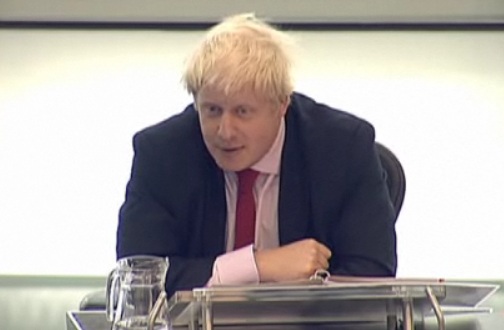Boris must be able to stand for the Tory leadership
Do the parties need to review their eligibility criteria?
Â
Two things stand out from a quick glance at the odds for the next PM. The first is that Ed Miliband (8/11, Ladbrokes), is rated about ten times more likely to be next to get the job than anyone else. That’s not too surprising: he’s secure in his own position, Labour has had a steady lead in the polls for most of the parliament now and a built-in advantage in seat/vote distribution and there’s only 17 months to the election. In addition, every PM in the last seven decades has come to Number Ten from one of only three positions: Leader of the Opposition, Chancellor, or Foreign Secretary.
That, however, flags up the other point even more: in joint third place, just behind Theresa May (16/1, Ladbrokes), is Boris Johnson at 20/1 with Hills. Arguably, there’s some sense to the logic: if David Cameron remains prime minister after the election, Boris may be well placed to succeed him in the middle of the next parliament, when Cameron would have been Tory leader for 12 or 13 years. Even so, it’d be a tight squeeze on the timetable for someone who’s neither an MP nor even a parliamentary candidate now.
That’s even more so in the Next Conservative Leader market. Here, Boris is joint-favourite with May, both being 5/1. Yet of the three realistic timetables for a leadership election (before 2015, immediately after the next election, later than 2015), two seem at present closed off to Boris.
Why then is his price so high when other markets suggest that Labour will win; an event which conventional wisdom says would almost certainly lead to Cameron’s resignation, when Boris couldn’t then stand? There are two related answers to that and both stem from the fact that he would by far be the most obvious next leader were logistics not an issue; a position his speech this week strengthened, if anything.
The first answer is that if he is such an obvious successor, there’d be pressure for an election to be delayed until Boris was in a position to stand. That, however, would run not only contrary to various individuals’ interests but also that of the Conservative Party, as it would create a vacuum of uncertainty. The second, is that there has to be a belief that whatever the rules say, a way would be found.
The rules themselves sound simple: “There shall be a Leader of the Party drawn from those elected to parliament.â€Â Straightforward enough? It’s MPs only. Not necessarily. Apart from the loophole that hereditary peers are also elected (after a fashion), if the will was there, it could be interpreted to mean “drawn from those ‘who have at any time’ been elected to parliamentâ€, which Boris has been.
This matters from a betting point of view but it also matters from a political one; parties’ constitutions are behind the times in this new, devolved, UK. In the past, their current or former front benchers in parliament were pretty much the only group a party would draw a leader from. Now, it’s entirely plausible to think of a high profile Labour First Minister in Wales or Scotland being considered a future UK party leader, or – as in the current situation – the mayor of London.
The United States regularly promotes governors to the White House. Similarly, German candidates for Chancellor often spring from regional parliaments. There’s no reason the UK shouldn’t do likewise. Indeed, the Conservatives have a precedent of sorts, when Douglas-Home became leader (and hence PM) in 1963, he was obliged to then find a seat in the Commons.
Not changing their rules could leave the Conservatives in an awkward position post-2015. Labour, without any currently viable extra-parliamentary candidates, has longer to sort things out but would be foolish not to anticipate the possibility.
